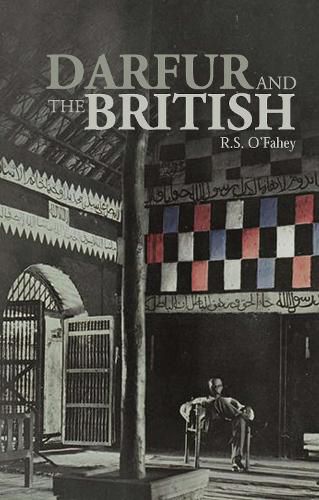Readings Newsletter
Become a Readings Member to make your shopping experience even easier.
Sign in or sign up for free!
You’re not far away from qualifying for FREE standard shipping within Australia
You’ve qualified for FREE standard shipping within Australia
The cart is loading…






This present volume presents annotated selections from the British records that were copied in situ by the author in al-Fashir and Kutum in 1970 and 1974 and of which the originals were subsequently destroyed by accident. The British were in Darfur for only forty years (1916-56) and, administratively, their impact was minimal. In retrospect, their most important role was in recording and codifying the customary law and administrative practice under the sultans. Their significance has become the greater recently following reports that the Sudan National Records Office is no long accessible to researchers. Darfur was unique in a Sudanese colonial context in that in 1916 the British conquered a functioning multi-ethnic African Muslim state. Their policy in the forty years of their rule was largely to maintain the system they had inherited from the sultans. Although they made some administrative modifications, it was only in the last few years before independence in 1956 that tentative steps were taken towards change, for example the introduction of local government in the towns.The material described here, a combination of administrative practice and ethnographic reporting, is far from simply academic in importance, but is invaluable on such issues as land tenure, agricultural practice, grazing rights and livestock migration routes, tribal administration and compensation for injury and death.
$9.00 standard shipping within Australia
FREE standard shipping within Australia for orders over $100.00
Express & International shipping calculated at checkout
This present volume presents annotated selections from the British records that were copied in situ by the author in al-Fashir and Kutum in 1970 and 1974 and of which the originals were subsequently destroyed by accident. The British were in Darfur for only forty years (1916-56) and, administratively, their impact was minimal. In retrospect, their most important role was in recording and codifying the customary law and administrative practice under the sultans. Their significance has become the greater recently following reports that the Sudan National Records Office is no long accessible to researchers. Darfur was unique in a Sudanese colonial context in that in 1916 the British conquered a functioning multi-ethnic African Muslim state. Their policy in the forty years of their rule was largely to maintain the system they had inherited from the sultans. Although they made some administrative modifications, it was only in the last few years before independence in 1956 that tentative steps were taken towards change, for example the introduction of local government in the towns.The material described here, a combination of administrative practice and ethnographic reporting, is far from simply academic in importance, but is invaluable on such issues as land tenure, agricultural practice, grazing rights and livestock migration routes, tribal administration and compensation for injury and death.